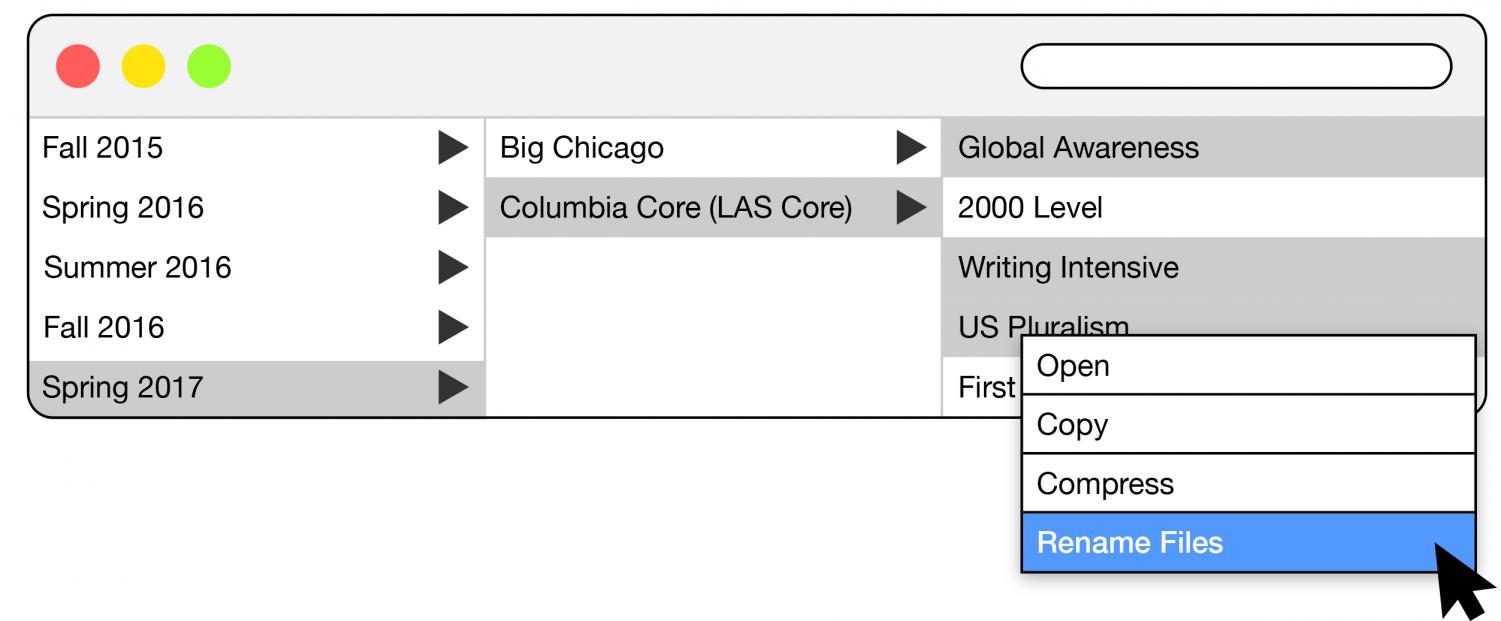Committees propose new curriculum requirements, additions
February 20, 2017

Committees propose new curriculum requirements, additions
New required courses—including a “Creative World” course for transfer students, and a business course required for all upperclassmen—as well as the opportunity to declare a “pathway”—were among the curriculum proposals announced in a Feb. 8 email from the Office of the Provost.
Steven Corey, interim dean School of Liberal Arts & Sciences and chair of Columbia’s Core Curriculum Committee, said the newly proposed courses will provide an educational framework, similar to that of the Big Chicago classes, and are the next logical step in expanding the student experience.
“It’s a great way to have an experience that’s more than just one semester,” Corey said. “It’s to work with the process of a student selecting a major and also beginning their general education core curriculum in the essential Liberal Arts & Sciences.”
The proposal, which was sent to faculty and staff and will be up for approval to Faculty Senate by April 1, also outlines revisions of required LAS courses including the removal of the Writing Intensive, Global Awareness and U.S. Pluralism required course categories. Corey said even though the categories are being eliminated, the courses that fall under the titles will continue to be available in the course catalog.
Pegeen Reichert Powell, associate professor in English Department and member of the Curriculum Core Committee, said the learning goals will stay the same but will be reached in different ways.
“It’s not that we decided these other things were more important but just that maybe there were better ways to achieve some of these same goals,” Powell said.
Additional changes include a requirement of fifteen 2000 level or higher credits before graduation, as opposed to the current six. Six credits with a diversity, equity and inclusion focus will also be required in the proposal.
“We want to encourage students very much to go beyond,” Corey said. “Our current LAS Core has a great deal of breadth; in fact the curriculum of the college has a great deal of breadth, but we want depth. We want students to go deeper into subject matters.”
Class designations, called pathways, would also be created under the proposal. These pathways, between 12-18 credits, would cover 18 of the 33 “Essential Liberal Art and Science” credits. The pathways will not be required and are designed to create an overarching educational theme throughout LAS courses, Corey said.
If students complete the pathway’s credit requirement, the name of the framework will appear on their transcripts and include “The Senses,” “Nature and Society,” and “The Mind and The Body,” but according to Corey, are subject to change.
“Rather than just having a checklist, where students choose [courses that are] disconnected, we wanted there to be some sort of grouping or way in which students could take a theme that really interests them,” Corey said.
The Integrated First Year Experience Committee and the Core Curriculum Committee have worked on the proposals since October 2015, first individually and then cooperatively in May 2016. The committees will be considering suggestions made by the campus community and make changes to the proposal based off the input over the next two months.
Brian Marth, assistant provost for Academic Services and staff representative for the IFYE Committee, said while current students will not be affected by the changes, he hopes they will still provide input on the proposal for future students.
“There are probably some ways the proposal could improve with some community and critical feedback,” Marth said.
The curriculum proposal will be presented Feb. 27 at Stage Two in the 618 S. Michigan Ave. Building, where committee members will collect collegewide input.
The College Assembly will be working with the Office of the Provost to publicize the meeting and plans are underway for coordinating a meeting for students though the Student Government Association, according to Marth.
“Our goal in bringing the Core group together with the IFYE group is to really examine, as an institution, how do we make sure there is a Columbia experience?” Marth said. “[We’re] looking at what’s common for all students so we can develop curriculum and an experience for students.”







